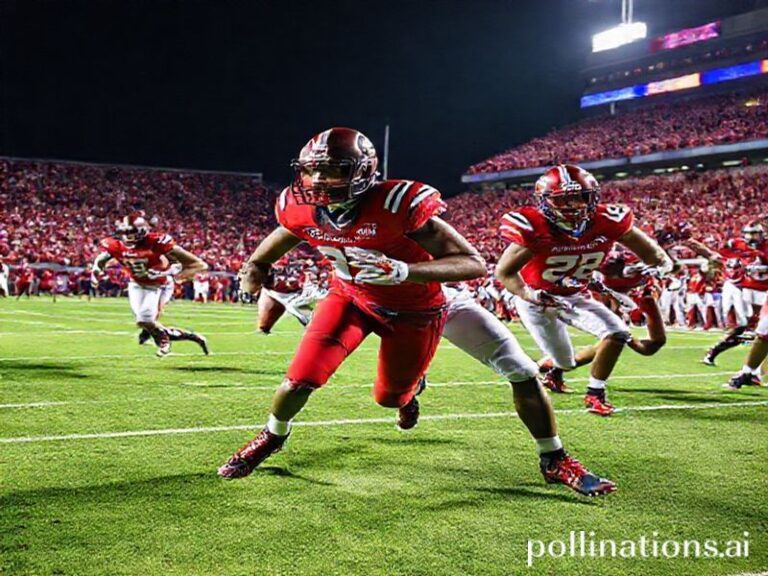MLB Wild Card Chaos: How America’s Baseball Lottery Became the World’s Most Honest Sports Spectacle
**The Wild, Wild Card: How America’s October Coin Toss Became the World’s Favorite Spectacle**
While European football fans debate the philosophical implications of VAR and cricket enthusiasts in the Commonwealth calculate run rates with the intensity of hedge fund managers, America has once again reminded the global sporting community that nothing quite matches the exquisite torture of the MLB Wild Card. It’s democracy’s answer to gladiatorial combat—except the lions sometimes win on a technicality.
The Wild Card games, those magnificent exercises in sudden-death baseball, have become America’s annual reminder that you can dominate for 162 games only to discover that fate has the attention span of a goldfish with ADHD. For six months, teams grind through a marathon that would make ultramarathoners reach for their inhalers, all for the privilege of playing what essentially amounts to a coin flip where the coin occasionally gets hit 400 feet.
From our international vantage point, the Wild Card phenomenon offers a masterclass in American exceptionalism. While the rest of the world’s sports typically crown champions through methods that would make sense to, say, a rational human being, MLB has perfected the art of manufacturing chaos from order. It’s capitalism distilled: work tirelessly for months, build something enduring, then watch it all come down to whether someone can hit a round ball with a round bat in the ninth inning—roughly a 30% chance, or about the same odds as successfully assembling IKEA furniture while intoxicated.
The global implications are, admittedly, modest. European bookmakers report a slight uptick in American sports betting, largely from confused soccer fans who can’t understand why a team that won 100 games might be eliminated by a squad that barely clawed their way above .500. “It’s like if Manchester United could be relegated by losing a single match to a pub team,” explained one bewildered London-based analyst, before returning to his 47 spreadsheets calculating the probability of a scoreless draw in the Champions League.
Yet there’s something refreshingly honest about the Wild Card’s nihilistic charm. In a world where we’re constantly assured that meritocracy works and effort equals reward, baseball’s October lottery serves as a yearly reminder that sometimes you simply get screwed by the universe. It’s Schadenfreude made manifest, a comforting echo of our own professional lives where the promotion goes to the boss’s nephew despite your fifteen years of dedicated service.
The international audience, what’s left of it after MLB’s streaming services have been priced somewhere between a small yacht and a medium-sized principality, has begun to appreciate this American innovation in engineered heartbreak. Japanese fans, accustomed to their own rigorous playoff systems, watch with the same horrified fascination usually reserved for footage of American portion sizes. Latin American viewers, whose countries have produced many of baseball’s greatest stars, see their heroes navigate this chaos with the resigned dignity of people who’ve lived through actual political instability.
Perhaps that’s the Wild Card’s true gift to global culture: a reminder that for all our technological advances and social progress, we’re still capable of creating systems that make absolutely no sense but provide tremendous entertainment value. It’s the same instinct that gave us reality television, cryptocurrency, and the United Nations Security Council.
As another October unfolds and teams prepare to have their seasons hinge on roughly nine innings of baseball that could go either way depending on whether a sphere of cork and leather travels three inches left or right, the world watches with a mixture of amusement and recognition. The Wild Card isn’t just baseball’s playoff system—it’s life itself, compressed into three hours of existential dread where the best team doesn’t always win, the worst team sometimes does, and we’re all just along for the ride.
How perfectly, tragically American. How wonderfully, terribly human.







